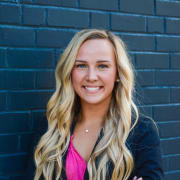Hill Rodeo Cattle Talks 2023 NFR Team Roping Steers

Hill Rodeo Cattle, based out of Mexia, Texas, has contracted team roping steers at jackpots and rodeos all over the nation including: the National Finals Rodeo, Fort Worth pro rodeo, The American, San Antonio, Odessa, Austin and more.
Since, 2017 Hill Rodeo Cattle has taken 60-head of steers to Las Vegas at the end of each November for the NFR. However, the process the steers go through before going to Vegas might surprise some, they have a long journey before heading to the bright lights of Vegas.
In the PRCA rulebook, all team roping steers must be "M" branded Corriente steers, range between 475-575 lbs., have dime-sized tipped horns, tail switches bobbed off at the bottom, and have readable ear tags.
Hill Rodeo Cattle buys all their steers from Mexico, they go through the process with a buyer that gathers up enough cattle from individual families to cross the border.
For years, they had a broker that crossed their cattle for them. However, now after many years in the industry they do it themselves. Once the buyer ships the cattle to the border, they are then quarantined, dipped in a dipping bath, and receive health inspections before Hill Rodeo Cattle can pick them up.
They begin the picking process in the spring as they cross cattle for other various events. From each load that is crossed they pull a select few off that meet the requirements. After doing this all spring, summer, and fall, by November they have a set of 100 steers.
"Once the 100 head is put together we send them to Kaleb Driggers house, all 15 NFR teams are allowed to break in the steers there," Tara Hill says "Once they are broke in they are sent back to our house before we take them to the Jingle Bell Classic where they will be roped in the open roping."
After the Jingle Bell Classic the herd is narrowed down to the 60 best steers that will go on to be roped at the NFR.
The steers start their two-day trek to Las Vegas on Nov. 28, they lay over one night half way through their trip to let the steers out to rest. Once in Las Vegas, the PRCA provides around the clock care for all the stock, monitoring them closely throughout the duration of the event.
Days before the NFR starts, the steers are ran through at the Thomas and Mack by all 15 teams. "At that point the pens are picked for each round. There are three pens: a big stronger set that will be roped in four rounds, a medium set that goes three times, and a set of bigger softer steers that will also go three times," Hill says. "The pens will stay the same the entire time. There are five extra steers on each pen."
After the NFR is over, some ropers buy steers they won a round or set the arena record on. Hill says, "Junior (Nogueira) has a steer he calls 3-3, that was in one of the first sets that we ever sent to the NFR. They tied the arena record on that steer, so he bought him to retire in his pasture."
As for the rest of the steers, the soured ones are cut from the herd, and the rest go to Odessa, TX pro rodeo at the beginning of the year then on to Fort Worth shortly after.
For almost 20 years, Bobby Joe and Tara Hill have been in the stock contracting business. They take pride in the condition and performance of their stock. Hill says they have fulfilled their lifelong goals of taking cattle to all the major indoor rodeos and the NFR. Raising their family along side their cattle operation is a dream come true.
